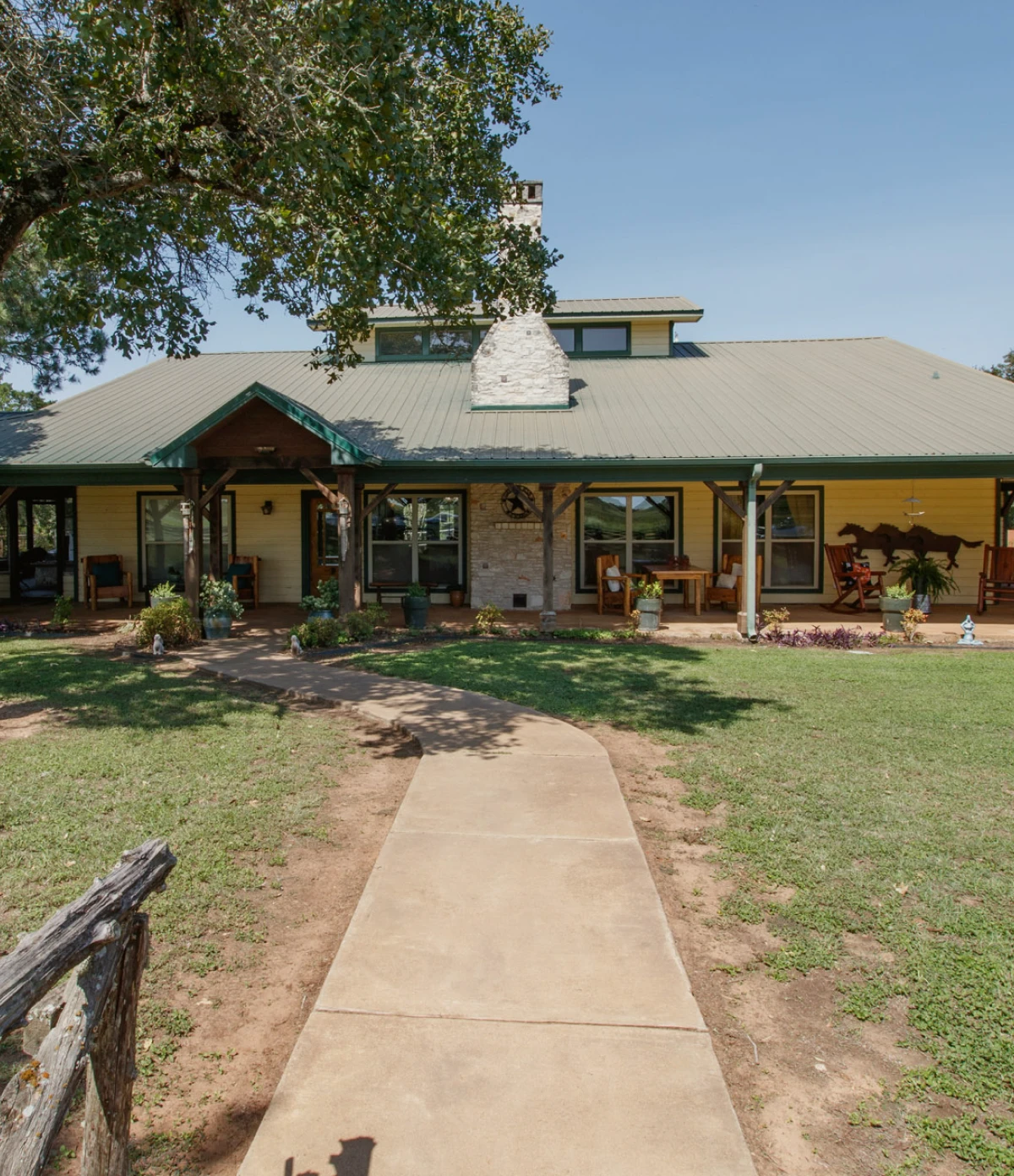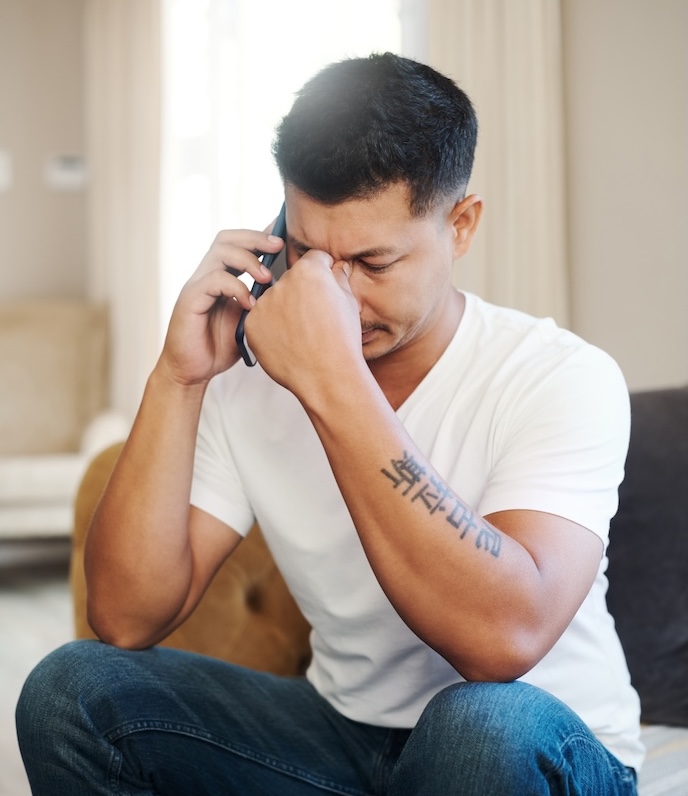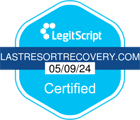We work with insurances. Verify yours now
Dual Diagnosis Treatment Center in Austin, TX
Bipolar disorder is an ongoing battle with extreme highs (mania) and crushing lows (depression). These unpredictable mood swings can make everyday life exhausting, especially when paired with substance use or other co-occurring mental health conditions.
Many individuals turn to drugs or alcohol to cope with mood instability, trying to soften the highs or escape the lows. While that may provide temporary relief, it often makes symptoms worse, creating a dangerous cycle where both addiction and mental health issues feed into each other. That’s why a dual diagnosis approach—treating bipolar disorder alongside substance use disorder—is crucial for real, lasting recovery.


It’s easy to convince yourself that you “have it under control,” but untreated bipolar disorder can wreak havoc on every area of life. If any of these sound familiar, residential treatment might be the right next step:
If you’re stuck in this cycle, you don’t have to figure it out alone. The proper support can make all the difference. Contact The Last Resort today to get started.
A quick doctor’s visit and a prescription often aren’t enough to manage bipolar disorder—especially if substance use or past trauma are also in the mix. Residential treatment provides a structured, supportive environment where you can focus on your recovery without the distractions and triggers of daily life.
At The Last Resort Recovery Center, we create an individualized treatment plan tailored to your unique challenges. That means combining science-backed therapies, holistic healing approaches, and real-life skills training to help you manage symptoms long after you leave our program.
Here’s what makes our program different:
Living with bipolar disorder and substance use issues often feels unpredictable, but structure helps create stability. Our residential program provides a daily routine with therapy, wellness activities, and time to reflect and rebuild. When you know what to expect each day, regulating emotions and focusing on healing becomes more effortless.
Most men with bipolar disorder struggle with more than just mood swings—they’re also dealing with co-occurring conditions like anxiety, PTSD, or substance use disorders. Treating one without addressing the others doesn’t work. That’s why our dual diagnosis approach ensures that everything affecting your mental health is treated together, not separately.
Our clinical team provides:
Recovery is about more than just getting sober and managing your symptoms. We believe it’s about learning how to live in a way that supports your mental health. That’s why at The Last Resort, we integrate hands-on, experiential therapies that help men connect with themselves and their world.
As part of our continuum of care for bipolar disorder and dual diagnosis treatment, you’ll have the opportunity to engage in:
We’ve seen first-hand how these real-life moments of resilience, confidence, and emotional control allow our clients to gain skills far beyond their treatment time.
Veterans face unique challenges when it comes to mental health. Whether it’s combat-related trauma, reintegration stress, or the impact of service on their mental well-being, bipolar disorder in Veterans often presents differently than in the general population.
The Last Resort Recovery Center offers specialized therapy for Veterans (and various additional unique populations) that accounts for these unique experiences. Our program helps Veterans:
Many Veterans in our program find success because of our structured, comprehensive approach to recovery and wellness. You don’t have to fight this battle alone—our team is here to help.
Healing doesn’t stop when residential treatment ends. That’s why we offer continued care and outpatient support at our centrally located Austin, TX, outpatient rehab and treatment center, making it easier to transition back into daily life while maintaining access to support.
At The Last Resort Recovery Center, we know that bipolar disorder doesn’t define you—but the proper treatment can redefine your future. Our residential treatment facility for bipolar disorder in Texas provides the structure, support, and real-world strategies needed to take back control of your life.
Paying for treatment should never be a barrier to recovery and healing. There are several options available that do not put your family in financial jeopardy. The Last Resort is an in-network provider that works with most insurance companies.








We’re excited to share the positive experiences of our other community members, many of whom were where you are today – overwhelmed and uncertain. These are their stories. What will yours be?
Come experience a healing adventure like none other. Our expansive and secluded men’s-only ranch sits on 55 acres of central Texas beauty and is a tranquil sanctuary designed to promote rest, reflection, and recovery.
From rolling hills and ancient tree groves to warm ranch-style accommodations, you’ll feel right at home. You’ll enjoy a full range of amenities and experiences, including an outdoor pool oasis, a fitness studio, and a fully-stocked horse barn.
Our secondary location is a comfortable, modern facility with shared and private spaces that is home to all of our outpatient services. This center is conveniently located in south Austin off Menchaca Rd.
When drug or alcohol addiction takes root in your life, it colors everything you do, how you show up at work, at home, and for yourself. Your family often feels the worst of it. You know this is not what you had in mind for your life. There has to be a healthier way to manage your emotional distress and overcome the challenges you face.
As the opioid epidemic has continued to explode, so has the treatment industry. Unfortunately, not all are of the same quality or the same caliber.
Accredited status for our addiction treatment center confirms that the services we offer meet or exceed the official standards of practice established by the state and other governing organizations by passing a series of detailed assessments.
Understanding accreditation affords you and your loved ones the confidence to pursue long-term recovery with renewed peace of mind.




If you or a loved one is battling alcohol or drug addiction, you’re in the right place. Even if you’ve tried other treatment programs or think you’re at the end of the line, this is the community you need to thrive. We can’t wait to facilitate your recovery and be part of your success story.
As part of our commitment to clients and families, we share high-quality resources, industry-related news, and practical education with those in our circle of influence. We hope these resources equip and inspire those who read them to take positive, healthy action.
The goal of all content is to empower and equip without compromise. Every resource The Last Resort creates is not supported by sponsorship or advertisers and is therefore free of bias and murky agendas.
All of our educational materials are produced or reviewed by the team at The Last Resort. We staff and consult with subject matter experts and industry professionals to ensure all that is shared is accurate and accessible.
Residential treatment provides a structured, immersive environment where individuals with bipolar disorder can focus entirely on their recovery. At The Last Resort Recovery Center, we take a dual diagnosis approach, meaning we treat both bipolar disorder and substance use disorders together—not separately. Through a combination of therapy, medication management, and holistic treatments, clients develop the tools needed to manage mood swings, avoid self-medication, and create a stable, fulfilling life.
Our treatment approach is tailored to each client’s needs and may include:
Veterans often face unique mental health challenges, including PTSD, trauma, and reintegration struggles. Our program is designed with Veterans in mind, providing a structured, camaraderie-driven environment that aligns with military values. We offer specialized therapy for Veterans, focusing on emotional regulation, trauma recovery, and real-world coping strategies to navigate bipolar disorder and co-occurring conditions. Many Veterans thrive in our program because of our structured, hands-on approach to healing.
[1] Teeters, J., Lancaster, C., Brown, D., & Back, S. (2017). Substance Use Disorders in Military veterans: Prevalence and Treatment Challenges. Substance Abuse and Rehabilitation, Volume 8(1), 69–77. https://www.ncbi.nlm.nih.gov/pmc/articles/PMC5587184/ on July 2, 2024
[2] Abuse, N. I. on D. (2019, October 11). Military Life and Substance Use. National Institute on Drug Abuse. https://nida.nih.gov/research-topics/military-life-substance-use on July 2, 2024
[3] rfletcher. (2017, May 25). Recognizing Substance Use Disorders. Military OneSource. https://www.militaryonesource.mil/health-wellness/substance-abuse-addiction/understanding-and-identifying-substance-use-disorders/ on July 2, 2024
[4] National Institute on Drug Abuse. (2019). Substance use and military life drugfacts. National Institute on Drug Abuse. https://nida.nih.gov/publications/drugfacts/substance-use-military-life on July 2, 2024
[5] Acierno, R. (2023). Substance Abuse in Veterans – PTSD: National Center for PTSD. Va.gov. https://www.ptsd.va.gov/understand/related/substance_abuse_vet.asp on July 2, 2024